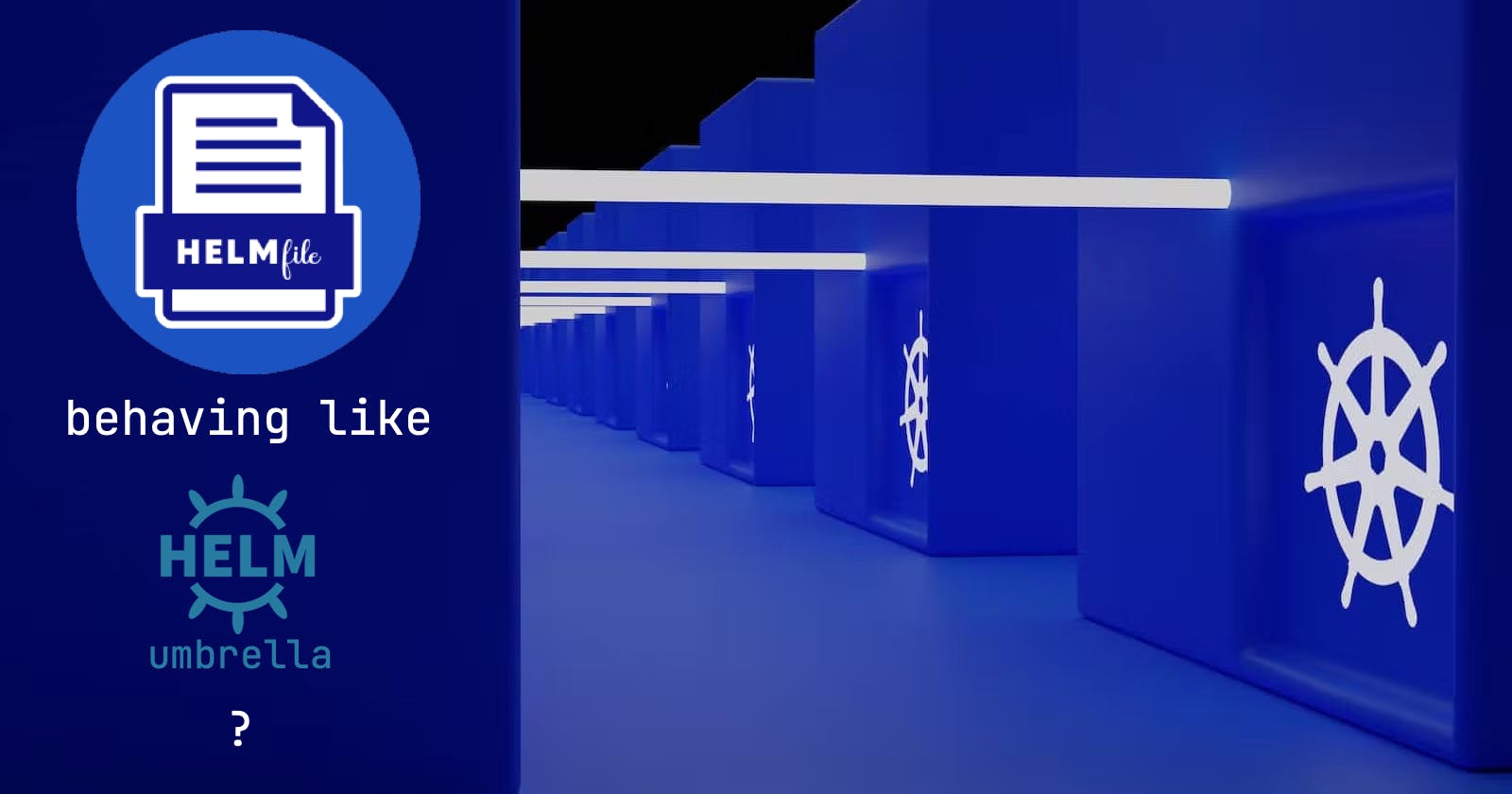helmfile is a very nice and powerful tool to manage multiple Helm charts declaratively. However, there is one area in which I find it suboptimal: the handling of values / environment values.
Let's go over how it works, and see how we can make it better. If you don't like to read, skip to My tip on using values in helmfile (or read the TL;DR in the repo linked below).
For a full example, check out this code:
👉 ✨ github.com/derlin/helmfile-intuitive-values.. ✨ 👈
Values in umbrella charts (pure Helm)
Coming from the Helm world, I am used to using umbrella charts, where all the default values for my charts are defined in one single values.yaml:
# globals are available to all sub-charts
# using .Values.global.*
global:
domain: dev.example.com
foo:
# default values passed to the sub-chart called 'foo'
image: nginx
tag: latest
bar:
# default values passsed to the sub-chart called 'bar'
mode: local
...
When some values need to be overridden per environment, I simply create a file <env>.yaml and pass it to helm using --values. For example:
# in environments/prod.yaml
global:
domain: prod.example.com # override the domain for all
foo:
image:
tag: 1.19 # use a stable docker image
...
To deploy to prod:
helm install my-umbrella-name . --values environments/prod.yaml
With helmfile though, there is no easy way to reproduce this behavior (well, there is actually, keep reading 😉).
Values in helmfile
In helmfile, one defines default values for a chart using the releases.<name>.values:
releases:
- name: foo
...
values:
- image:
repository: nginx
tag: latest
To add global values, there is an equivalent environments.default.values, but this only makes values available to the templates... It doesn't attach those values automatically. In other words, the following does nothing:
releases:
- name: foo
...
environments:
prod:
values:
- prod: true
To make it work, we need to add some values template to release foo (and all other releases), for example:
releases:
- name: foo
...
values:
- {{ toYaml .Values | nindent 8 }}
Now, prod: true will be passed to foo upon helmfile -e prod ...
The environment values are passed to all release templates, not releases! That is, they can be used inside gotmpl templates/files listed under release.<name>.values, but are not attached directly ...
This is already too complex to follow.
My tip on using values in helmfile
Instead of trying to understand how all those values work (and creating specific .gotmpl files for each release), here is how I managed to mimic the umbrella chart behavior regarding values with helmfile (one default value file + one file per environment, with global section and <release-name> sections).
First, create a folder called environments. In it, create a default.yaml file, and specify the default values for each release and the globals using the "umbrella chart syntax":
global:
# ... values passed to all releases
foo:
# ... values passed to release foo
bar:
# ... values passed to release bar
Next, create as many files as you have environments (environment prod → environments/prod.yaml) and override only what needs to be overridden (compared to default).
In the helmfile, configure each environment to read from default.yaml and the specific environment values:
# in helmfile.yaml
environments:
default:
values:
- environments/default.yaml
prod:
values: # apply default first, then prod
- environments/default.yaml
- environments/prod.yaml
Now, here is the trick. Create a magic gotmpl file that will extract both the global section and the release-specific section of the values:
{{/* in env-magic.gotmpl */}}
{{/*
extract both global and <release-name> sections from
.Values, and merge them (giving precedence to release
specific values.
Note: missing entries are fine.
*/}}
{{ merge (.Values | get .Release.Name dict) (.Values | get "global" dict) | toYaml }}
And attach this magic file to all releases in the helmfile:
# in helmfile.yaml
releases:
- name: foo
...
values:
- &env env-magic.gotmpl # use a YAML anchor for DRYness
- name: bar
...
values:
- *env # reference the anchor
...
That's it! Now, you can simply edit the files in environments/ and don't have to think about (or touch) values in helmfile anymore.
Example
A complete example (and a different explanation) is available here:
Written with ❤ by derlin

